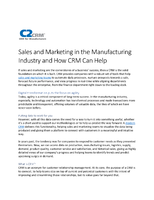Lyman-Morse Expands Capablities with New CNC Machining Center
Lyman-Morse has a new Haas GR-172 router can cut parts and materials with previously unattainable speed and accuracy.
Lyman-Morse Boatbuilding has made a significant capital outlay for a new in-house CNC router that should pay dividends in efficiency, quality and additional revenue opportunities.
"My father and I have been talking about this for about a year," says Drew Lyman, 36, president of the Thomaston, Maine-based custom builder, whose father, Cabot, launched the business in 1978 by purchasing the Morse Boatbuilding Co.
Lyman-Morse owns a "basic" computer numerically controlled router but contracted with CNC shops to cut fiberglass molds, joinery panels for interior woodwork, aluminum electrical panels, foam core kits and tank-testing models, among other jobs. "Now all this work can come in-house with this bigger and better machine, which is a real serious workhorse," Drew Lyman says of the $200,000 Haas GR-712 router. "We look at it as a big-time, long-term investment by growing our bottom line, making the yard more competitive in the marine marketplace and expanding LMB's business into other non-marine industries. We want to remain one of the most tech-savvy companies in our industry."
The expanded CNC department will use 3D computer-assisted design and computer-assisted machining software to send data directly from the design office to the CNC router, affectionately named "Gretchen Haas." The versatile router can cut myriad parts and materials, including hull molds, bulkheads, custom stainless and aluminum fittings, and composite materials, with a previously unattainable accuracy and speed, the company says.
Gretchen was quickly put to work in the construction of an LM-e33 daysailer and the steering wheels for a 100-foot Grand Prix sailing yacht that Lyman-Morse is refitting. "We're pretty booked," Lyman says, "but we will be looking to contract outside jobs to increase revenue."
CNC technology works by sending Cartesian coordinates, generated by a computer, to a milling machine or router, which then cuts the corresponding shapes. "The precision attainable with these machines can be measured in thousandths of inches, and parts can be cut in a fraction of the time that is required when using manual cutting tools, thus eliminating costly waste of materials and time," Lyman says. "It will cut down on project hours and free up our guys to take on more billable work."
Lyman says about 90 percent of Lyman-Morse's business is marine-related, but the company would like to grow the non-marine-related work — primarily military contracts — that is now 10 percent of its business.
The father-son family business specializes in composites and aluminum construction. Since the yard was founded 36 years ago, a diverse fleet of more than 100 yachts has been sent down the St. George River: carbon fiber catamarans, traditional sailboats, carbon racing monohulls, luxury motoryachts, sportfishing boats, jetboats and daysailers.
Lyman-Morse has a work force of more than 90 people on an 11-acre campus. There are seven heated work buildings with 55,000 square feet of space for refits and repairs, and boatbuilding. The company's services include metal fabrication, rigging and canvas work, painting and varnishing, cabinetry, design and engineering, and mechanical systems.




